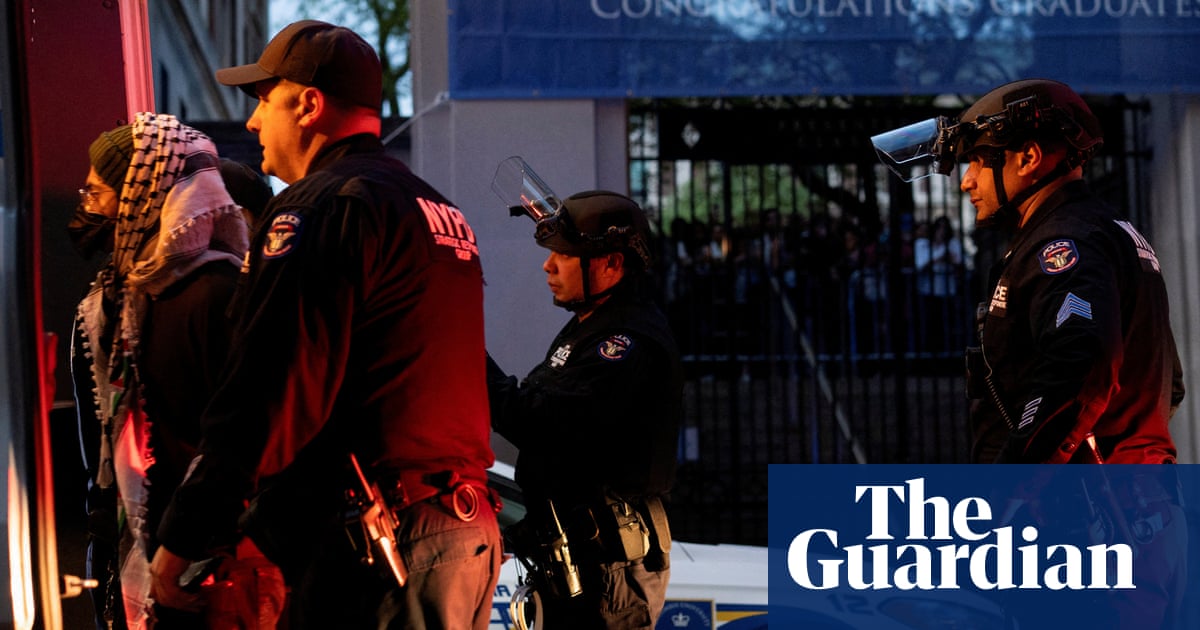The daughter of actorsMaggie GyllenhaalandPeter Sarsgaardwas among those arrested at the latest Columbia University protests, marking the latest development in the anti-war demonstrations that also led to the temporary suspension of student journalists.
On Friday, the New York Postreportedthat 18-year-old Ramona Sarsgaard – a Columbia freshman – was arrested during Wednesday’s campus protests where students demonstrated against Israel’s deadly war in Gaza.
Sarsgaard was given a desk appearance ticket for criminal trespassing, the outlet reported, citing people familiar with the matter. The university did not immediately respond to a request for comment about the Post’s report.
The arrest of Sarsgaard, along with dozens of others, came after anti-war student activists occupied part of the main Butler library building onColumbia Universityfor several hours in a show of solidarity with Palestinian liberation.
Renaming the space the Basel al-Araj People’s University, the studentshung a signthat read “Strike for Gaza” while others distributed pamphlets calling on the university to divest from funds and businesses involved in Israel’s war there. Videos posted on social media showed students also locking arms and chanting: “We have nothing to lose but our chains!”
In response, university officials called in the police, leading to many students being forcefully arrested. A statement on Wednesday from the university’s acting president, Claire Shipman,said: “Disruptions to our academic activities will not be tolerated and are violations of our rules and policies; this is especially unacceptable while our students study and prepare for final exams.”
Meanwhile, a separate statement on social media from student activistssaid: “We are facing one of the largest militarized police forces in the world. Deputized public safety officers have choked and beaten us, but we have not wavered … We will not be useless intellectuals. Palestine is our compass, and we stand strong in the face of violent repression.”
After the protests, Columbia University and its sister school Barnard College issued temporary suspensions to four student journalists who reported on the demonstrations at the library for Columbia Spectator and WKCR. The Columbia Spectatorreportedthat the students identified themselves as press to public safety officers.
According to the outlet, the students received email notices of their temporary suspensions on Thursday afternoon from rules administrator Gregory Wawro and Barnard dean Leslie Grinage. In his email to one of the student reporters, Wawro said the student may have “participated in a disruptive protest in 301 Butler Library”.
Grinage wrote to the three other student reporters saying that their “alleged actions at Butler Library pose an ongoing threat of disruption of, or interference with, normal operations at both Barnard and Columbia”.
Sign up toHeadlines US
Get the most important US headlines and highlights emailed direct to you every morning
after newsletter promotion
Columbia Universityliftedits temporary suspension of one of the student reporters approximately five hours after the initial notification, the Columbia Spectator reports. At about 9am on Friday, Barnard College lifted the suspensions of the three other student journalists.
The latest wave of student-led anti-war demonstrations at Columbia University come amid the the Trump administration’s sweeping crackdowns on student protests and free speech acrossUS universitiesas Israel continues its deadly attacks on Gaza.
In recent months, federal officials have detained numerous students for their anti-war activism, including Mohsen Mahdawi, a Columbia University student and green-card holder who wasrecently released. Others detained include Mahmoud Khalil, a Columbia University graduate whoremains in custodyat an immigration detention facility in Louisiana.
